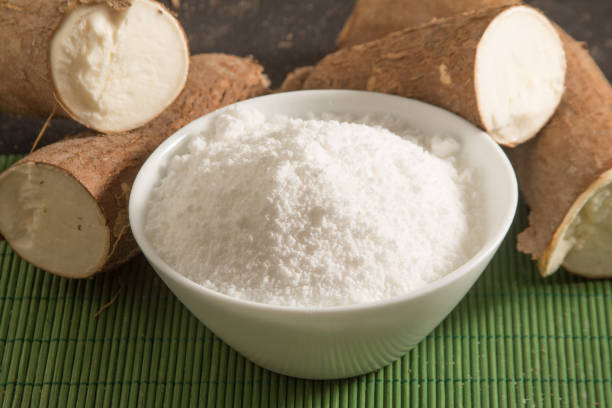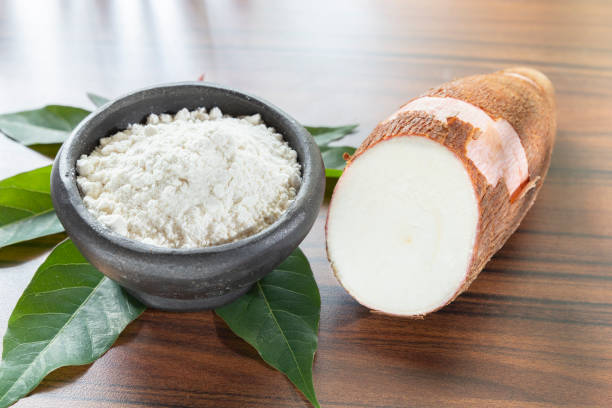Cassava flour, also known as yucca flour or tapioca flour, is derived from the root of the cassava plant, which is native to South America and widely cultivated in tropical regions around the world. The nutritional value of cassava flour is quite similar to that of wheat flour, with a few key differences.
One of the main nutritional benefits of cassava flour is its high fiber content. Cassava flour is a good source of both soluble and insoluble fiber, which can help to promote regular bowel movements and maintain healthy digestion. Additionally, the high fiber content of cassava flour can also help to lower cholesterol levels and reduce the risk of heart disease.
Another nutritional benefit of cassava flour is its low glycemic index (GI) score. This means that it is slowly absorbed into the bloodstream, which can help to prevent spikes in blood sugar levels. This makes it a good option for people with diabetes or other conditions that require careful management of blood sugar levels.
Cassava flour is also a good source of carbohydrates, providing around 20 grams of carbohydrates per 100 grams of flour. This makes it a good option for those looking to add more carbohydrates to their diet.
Cassava flour is also gluten-free and grain-free, making it a good option for people with celiac disease or gluten sensitivities, or those following a gluten-free or grain-free diet.
However, it should be noted that cassava flour is relatively low in protein, providing around 1 gram of protein per 100 grams of flour. This means that it may not be the best option for those looking to increase their protein intake.
In terms of its overall health benefits, cassava flour is considered to be a healthy option for most people. However, it is important to be aware of the potential risks associated with consuming cassava flour that is not properly processed. Cassava root contains a compound called linamarin, which can release cyanide when consumed in large amounts. To reduce the risk of cyanide poisoning, it is important to ensure that the cassava flour you are using has been properly washed and dried to remove any traces of linamarin.
In conclusion, Cassava flour is a nutritious alternative to wheat flour, rich in fiber and low in glycemic index. It is gluten-free and grain-free, making it a good option for people with celiac disease or gluten sensitivities, or those following a gluten-free or grain-free diet. However, it should be noted that it is relatively low in protein and it is important to ensure that the cassava flour you are using has been properly washed and dried to remove any traces of linamarin. As with any food, it should be consumed in moderation and in combination with a healthy and balanced diet.

 Home
Home Health
Health Diet & Nutrition
Diet & Nutrition Living Well
Living Well More
More












